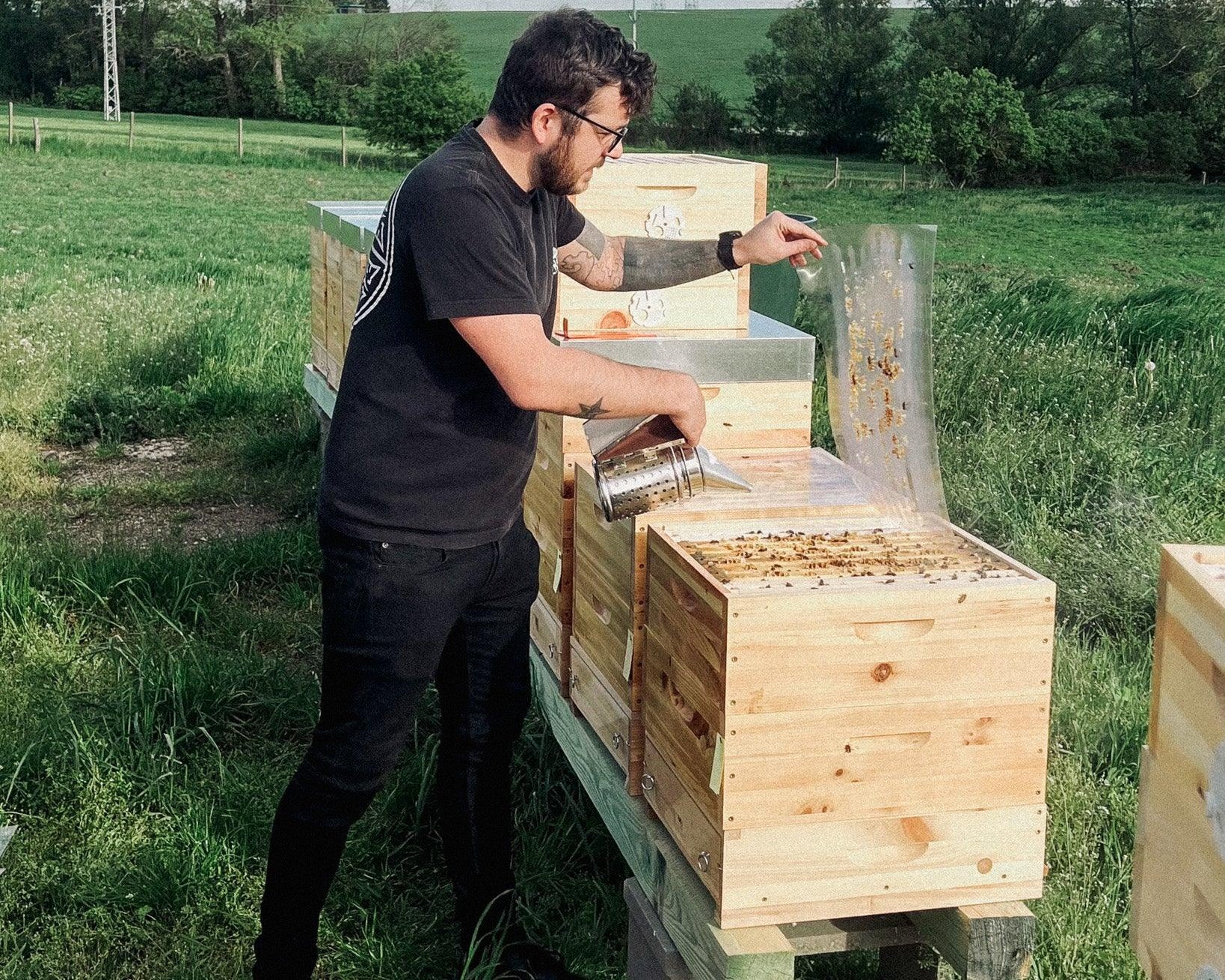
Beekeeping is a fascinating and important part of our ecosystem. At David's Organic Bee Farm, we are dedicated to protecting bees and promoting sustainable beekeeping. In this article, we will share the key steps in beekeeping that are essential for healthy and thriving bees. We want you to be successful and happy in your beekeeping journey, which is why we offer you our best practices and advice.
Proper care of the bee colony is key to their health, vitality and successful development. Here are some key steps you should consider:
Regular inspection of hives:
- Regular inspection of hives is important for monitoring the condition of the bee colony. You should regularly go through the hives and observe the activity of the bees. Check that there are enough bees and a fertile queen. In this way, you can quickly identify any problems, such as disease or the presence of pests.
Providing food for bees:
- Food is key for bees. Make sure they have plenty of flower resources around their hives. Plant flowers that are attractive to bees and provide them with plenty of pollen and nectar. You can also consider placing bee feeders near the hives, especially during times of scarcity of natural food sources.
Protection against pests and diseases:
- Prevention is the key to protecting the bee colony from pests and diseases. Monitor your bees regularly for signs of infection or the presence of pests such as mites or wasps. Remember that prevention is better than cure, so follow hygiene measures and keep the beehives clean.
Proper handling of bees:
- It is important to follow proper procedures when handling bees. Always wear protective gear such as raincoats and gloves to minimize the risk of being stung. Learn proper bee handling techniques and be careful and respect their space.
Caring for a bee colony is essential for their health and prosperity. At "David's Organic Bee Farm" we are dedicated to providing support and best practices for successful beekeeping. Beehive care includes regular inspection of hives, provision of food, protection from pests and proper handling of bees. If you have any questions or need more information, please do not hesitate to contact us. Together we can contribute to protecting bees and maintaining a healthy ecosystem.




